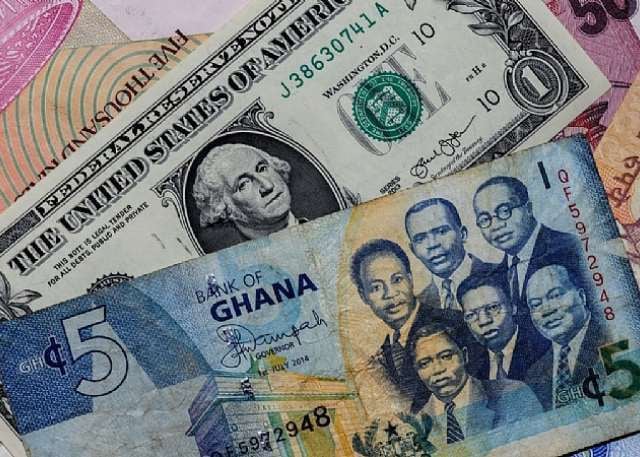The Ghanaian cedi faced significant depreciation against major international currencies in the third quarter of 2025, particularly on Friday, September 5th. Data compiled from various sources, including Cedirates.com, forex bureaus, and the Bank of Ghana interbank market, paint a picture of a struggling currency. The cedi traded at an average of GHS11.82 for buying and GHS12.42 for selling against the US dollar in the open market, while forex bureaus offered rates of GHS12.50 for buying and GHS12.70 for selling. This discrepancy between the average rates and forex bureau rates highlights the volatility and challenges faced by individuals and businesses seeking to acquire foreign currency. The Bank of Ghana’s interbank market, which typically offers more stable rates, quoted the cedi at GHS11.94 for buying and GHS11.96 for selling against the dollar, still indicating a substantial decline in value.
The cedi’s weakness extended beyond the US dollar, impacting its exchange rate against other major currencies like the British pound and the euro. Against the pound, the average forex bureau rate was GHS15.79 for buying and GHS16.67 for selling, while the Bank of Ghana’s interbank rate was GHS16.06. This suggests that individuals seeking to acquire pounds faced higher costs in the open market compared to the official interbank rate. Similarly, the euro traded at GHS13.73 for buying and GHS14.46 for selling at forex bureaus, while the interbank rate remained at GHS13.92. The consistently higher rates at forex bureaus further underscore the demand pressures and potential speculative activities affecting the cedi’s value.
Remittance services like LemFi and Afriex offered slightly more competitive rates compared to forex bureaus. For dollar remittances from the US or UK to Ghana, LemFi offered a rate of GHS12.05, while Afriex offered GHS11.90. For pound remittances, LemFi’s rate stood at GHS16.26, and Afriex offered GHS16.09. Euro remittances saw LemFi offering GHS14.06 and Afriex GHS13.96. These remittance rates, while generally more favorable than forex bureau rates, still reflect the overall depreciating trend of the cedi against major currencies. The slight variations in rates between the two remittance platforms likely reflect their individual operational costs and market strategies.
Digital subscription payments using Visa and Mastercard for services like Netflix, Spotify, and Apple Music were processed at GHS12.89 and GHS12.95, respectively. These rates fall within the range observed in the open market, highlighting the direct impact of currency fluctuations on consumers’ access to international digital services. The close proximity of these rates to the forex bureau rates suggests that these platforms are likely using market-based exchange rates for processing these transactions. The continued depreciation of the cedi, therefore, translates to higher costs for Ghanaians subscribing to these services.
The overall picture painted by these figures is one of concern for the Ghanaian economy. The weakening cedi contributes to inflationary pressures as the cost of imported goods and services rises. This, in turn, impacts the purchasing power of Ghanaians and can lead to economic hardship. The disparity between interbank rates and forex bureau rates further highlights the challenges in accessing foreign currency through official channels, potentially encouraging black market activities and exacerbating the currency’s decline.
Bloomberg’s ranking of the cedi as the worst-performing currency in the third quarter of 2025 underscores the severity of the situation. This negative assessment reflects the cumulative effect of various economic factors, including potential trade imbalances, fiscal pressures, and investor sentiment. The continued depreciation of the cedi requires urgent attention and proactive measures from policymakers to stabilize the currency and mitigate its negative impact on the Ghanaian economy. Addressing the underlying economic factors contributing to the cedi’s decline is crucial for long-term stability and sustainable economic growth.














